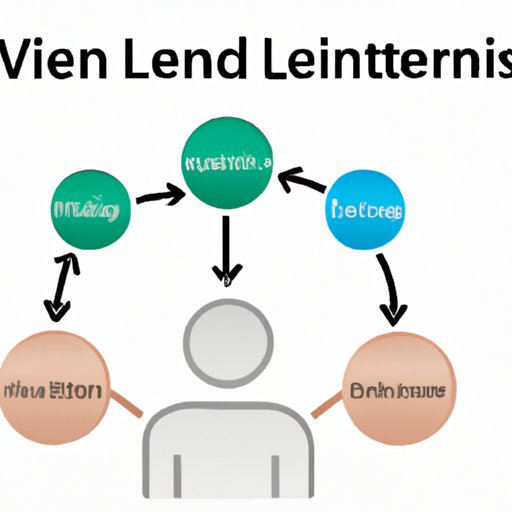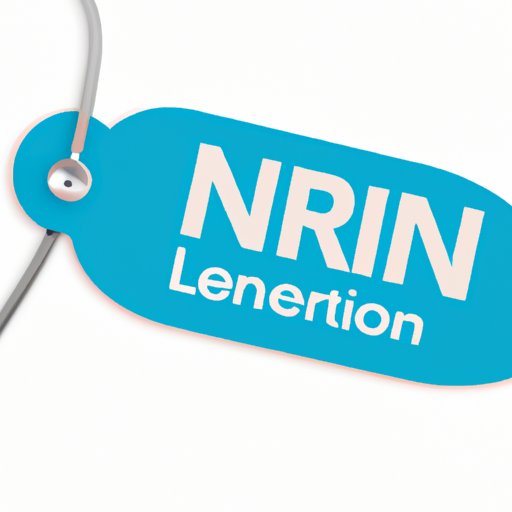I. Introduction
If you are interested in the healthcare system, pursuing a career in nursing as an LVN could be a good choice. LVN stands for Licensed Vocational Nurse, and it is a vital career field that is worth exploring. In this article, we will discuss the role, duties, education, training, job opportunities, as well as the pros and cons of becoming an LVN. We will also compare LVN with RN (Registered Nurse) to help you decide if this field is right for you.

II. Understanding the Role of an LVN
An LVN is a nurse who has completed a state-approved educational program and received a license to practice nursing. LVNs work under the supervision of physicians and registered nurses and are responsible for providing basic nursing care to patients. They work in various healthcare settings such as hospitals, clinics, long-term care facilities, and home health agencies. Their duties usually include but are not limited to:
- Taking vital signs, such as blood pressure, pulse, and temperature
- Administering medications and injections, and changing dressings
- Observing and documenting patients’ conditions and progress
- Performing basic laboratory tests
- Assisting patients with daily activities, such as bathing, dressing, and eating
To become an LVN, individuals must complete a state-approved educational program, usually lasting about 12-18 months, and pass the National Council Licensure Examination (NCLEX-PN).
III. LVN versus RN: Understanding the Key Differences
An LVN differs from an RN in terms of education, job duties, and responsibilities. RNs require a higher level of education, including an associate or bachelor’s degree in nursing and licensure via the NCLEX-RN exam. RNs can supervise LVNs and can perform more complex procedures such as administering intravenous fluids and blood transfusions, operating medical equipment, and developing patient care plans.
However, becoming an LVN requires less time and resources than an RN, making it an attractive option for those who want to start working in the healthcare industry quickly. Additionally, the lower level of education needed means that LVNs have a lower overall salary than RNs, but in some cases, the difference may not be significant. Ultimately, the decision between becoming an LVN or an RN will depend on your personal and professional goals.
IV. The Pros and Cons of Becoming an LVN
Before entering this field, it is important to consider the pros and cons of becoming an LVN.
Advantages
- Shorter educational program: LVN educational programs usually take 12-18 months, meaning you can start working in the field faster than pursuing an RN degree which can take several years to complete.
- Job security: the healthcare field is always recruiting new nurses, and there is a high demand for LVNs, making it easier to get a job.
- Possibility of job growth: The Bureau of Labor Statistics projects the employment of vocational nurses will increase by 9% between 2019-2029.
- Flexible schedules: LVNs can work in various healthcare settings, and often find work that fits with their lifestyle needs.
Disadvantages
- Lower salary: LVNs earn a lower annual salary than RNs. According to the Bureau of Labor Statistics, the median annual salary for LVNs in 2020 was $48,820, compared to an RN’s median annual salary of $75,330.
- Heavy workload: LVNs usually work in a highly stressful and physically demanding environment, making the career exhausting sometimes.
- Career growth limitations: LVNs have fewer career advancement opportunities than RNs because of their lower level of education and thus is easier to move around and start new career paths.
V. Finding and Applying for LVN Jobs: A Complete Guide
If you have decided to pursue a career as an LVN, you should know how to search and apply for LVN jobs:
Step 1: Research
Use online job boards such as Indeed, LinkedIn, Glassdoor, and Nurse.com to search for LVN jobs in your area. Check job openings in various healthcare settings, such as hospitals, clinics, and nursing homes. Read job descriptions to ensure that you meet the qualifications and job requirements.
Step 2: Application
Prepare a nursing resume that highlights your skills, qualifications, and experiences. According to the job description, you may need to write a tailored cover letter highlighting your strengths and why you are the best candidate for the position.
Step 3: Interview Preparation
Prepare for the interview by researching the organization, practicing your communication skills and thinking about questions that you may be asked. It is suitable also to express your passion for the job and enthusiasm to get the position.
VI. Who Employs LVNs: A Comprehensive List
The types of healthcare facilities that employ LVNs include:
- Hospitals
- Nursing facilities and assisted living facilities
- Home Health Agencies
- Outpatient clinics and urgent care centers
- Schools and colleges
- Clinics and doctor’s offices
Job opportunities in each of these settings may vary according to location and individual qualifications. For instance, those living in rural areas may not have as many job opportunities as those living in urban areas.
VII. Frequently Asked Questions about LVNs
1. What is an LVN’s job description?
LVNs are responsible for providing basic nursing care to patients, such as administering medication and injections, taking vital signs, documenting patient symptoms and progress, performing wound care, and assisting with daily activities.
2. What education is required to be an LVN?
LVNs must have graduated from a state-approved LVN educational program and passed the National Council Licensure Examination (NCLEX-PN).
3. How much do LVNs make?
According to the Bureau of Labor Statistics, the median annual salary for LVNs in 2020 was $48,820.
4. What are the career advancement opportunities for LVNs?
LVNs can take continuing educational courses and complete additional certifications to advance their careers. Another option might be to pursue becoming an RN or advanced nurse practitioner.
5. What is the job growth outlook for LVNs?
The Bureau of Labor Statistics projects the employment of vocational nurses will increase by 9% between 2019-2029.
VIII. Conclusion
If you are passionate about the healthcare industry, pursuing a career as an LVN may be an excellent option for you. The field provides a stable job, a relatively flexible work schedule, and meaningful interactions with patients. However, it is important to consider the disadvantages too and whether they would affect your lifestyle. By weighing up the pros and cons, you can make an informed decision on whether to pursue an LVN education and career path.
